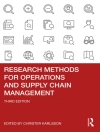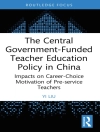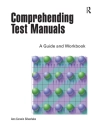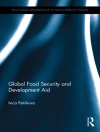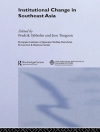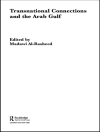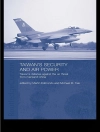This practical book shows practicing social scientists and graduate students how to account for cultural factors when developing and evaluating psychological and educational interventions using mixed methods research. Providing a methodological basis for handling cultural influences when engaged in intervention and/or evaluation work, the book covers a range of topics, including mixed methods research, program evaluation, ethnography, and intervention design. Throughout the book, the authors integrate illustrative examples to make more abstract content accessible.
Mixed Methods Research and Culture-Specific Interventions is Volume 2 in the SAGE Mixed Methods Research Series.
Daftar Isi
Editors′ Introduction
Preface
Acknowledgments
About the Authors
Chapter 1–Introduction: The Role of Culture and Context in Developing Intervention and Prevention Programs
Introduction
Why Should We Attend To Culture And Context?
Implementation Science and Translational Research
Limitations of Standard Research Approaches and Potential Contributions of MMR
Overview of the Book’s Content and Structure
Conclusion
Key Terms
Reflective Questions and Exercises
References
Chapter 2–Conceptual Models for Mixed Methods and Culture-Specific Intervention Development
Introduction
Conceptual Models for Intervention Development
MMR Models for Program Development
Key Terms
Reflective Questions and Exercises
References
Chapter 3–Use of MMR to Understand Context and Guide Program Design
Introduction
Ethnography and Associated MMR Practices for Cultural Study and Program Design
An Illustration
Conclusion
Key Terms
Reflective Questions and Exercises
References
Chapter 4–Use of MMR to Guide Implementation and Adaptation
Introduction
Conceptual and Procedural Foundations
Monitoring Program Implementation
Program Adaptation
Determining Overall Program Success
Capacity for Sustainability and Institutionalization
An Illustration
Conclusion
Key Terms
Reflective Questions and Exercises
References
Chapter 5–Use of MMR to Address Validity Concerns in Program Evaluation
Introduction
Conceptual and Procedural Considerations
Sampling, External Validity, and Transferability Consideration
Pulling it All Together: An Example
Conclusion
Key Terms
Reflective Questions and Exercises
References
Chapter 6–MMR Model Application: A Full Example
Introduction
Contextual and Cultural Considerations
Program Design
Program Implementation and Adaptation
Program Evaluation
Promoting Translation and Capacity Building
Conclusions
Reflective Questions and Exercises
References
Chapter 7–Implementation and Evaluation Challenges
Introduction: Common Challenges in Program Implementation and Evaluation
Establishing and Maintaining Partnerships
Gaining and Maintaining Stakeholder Commitment
Forming Sustainable Decision-Making Teams
Addressing Staff Development Needs
Resource Acquisition and Allocation
Creating Versus Adapting Existing EBIs
Thinking Through MMR Design Quality
Cross-Cultural Social Science Research Has Received Inadequate Attention
Conclusion
Key Terms
Reflective Questions and Exercises
References
Chapter 8–Future Directions
Introduction
Implications for Model Development
Application of MMR to Intervention Development and Evaluation
Implications for Extending Mixed Methodology
Advancing the Science of Intervention Development and Evaluation: Implications for Implementation Science
Final Thoughts
Reflective Questions and Exercises
References
Index
Tentang Penulis
John H. Hitchcock, Ph.D. (University at Albany, State University of New York, 2003, Educational Psychology) is an associate professor of Instructional Systems Technology within Indiana University’s School of Education, Bloomington, Indiana, USA. He is also the Director of the Center for Evaluation & Education Policy. Dr. Hitchcock’s research focus is on the use of mixed methods and other types of designs to evaluate interventions and policies that focus on helping students with specialized learning needs. He has served as a principal investigator, methodological lead and content expert for the What Works Clearinghouse (WWC) at the Institute of Education Sciences (IES) at the U.S. Department of Education, to complete a systematic review of interventions designed for children with emotional-behavioral disorders. He also served on a panel that drafted standards for assessing the causal-validity of Single-Case Design studies for the WWC. Dr. Hitchcock has served as a co-principal investigator of two large scale randomized controlled trials to assess the impact of reading and math curricula. He has contributed to efforts to develop programs that promote psychological well-being in Sri Lanka since 1998, and he is currently an Associate Editor for School Psychology Review.





